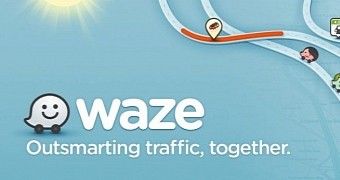Waze, the Google-acquired startup that mixes in maps and traffic flow, is launching a new program in which it will partner with ten governments to exchange data that they hope will help improve traffic conditions.
Waze’s partners are Rio de Janeiro (Brazil), Barcelona (Spain), Jakarta (Indonesia), Tel Aviv (Israel), San Jose (Costa Rica), Boston, State of Florida, State of Utah, the Los Angeles Country, and the New York Police Department in the United States.
For this program, the Israeli company will be providing real-time anonymized crowdsourced traffic data from its users to government departments, information that should help with the programming of the stop lights and general improvement of the traffic.
In exchange, government departments will be handing over information on public projects such as ongoing constructions, road sensors, and even pre-planned road closures, which would help Waze better direct users to their destination in the fastest manner.
The company also says that there are five other government partners signed up, while applications from more than 80 municipal groups have also been received.
The Next Web notes that “Connected Citizens,” as the program is called, will not involve any personal data about drivers.
Di-Ann Eisnor, head of Growth at Waze, says that the data exchange will only include public alerts, such as accidents and closures. “We don’t share anything beyond that, such as where individuals are located and who they are.”
This is an exchange program, not a sale
What’s more, the data isn’t being sold. This has gotten TomTom into trouble a few years back after the company decided it was a good idea to sell data to police departments to help find the best places to put speed traps.
Obviously, this didn’t bode well for the company and Waze has learned from it. “We keep the data clean by making sure we don’t have a business model around it,” Eisnor says.
Overall, this seems like a really good idea that could help both the government come up with ways to smooth traffic especially in extra busy cities and at rush hour. Waze will also be able to better direct its users around congestion sites, blocked roads, and construction sites without having to wait for reports from users that may come late, after someone has already been directed on a specific path.
It seems that one of the inspirations for the Connected Citizens program was an initiative during Hurricane Sandy, when the White House asked Waze to provide details about which gas stations were open.

 14 DAY TRIAL //
14 DAY TRIAL //